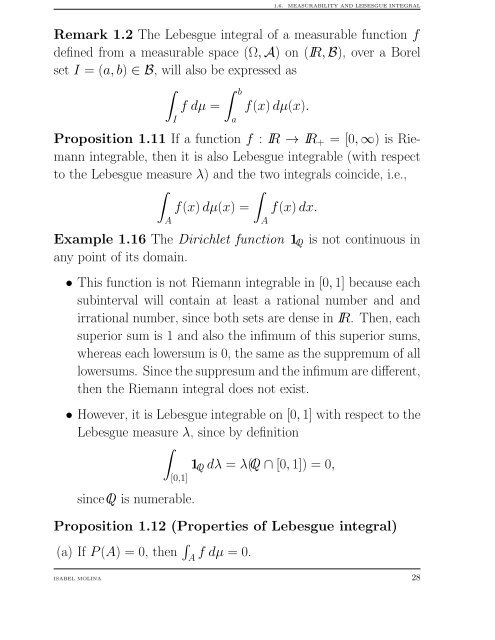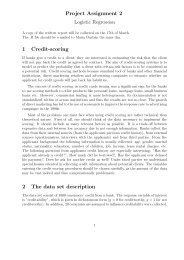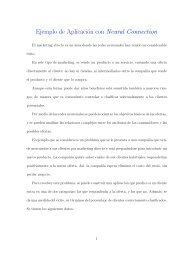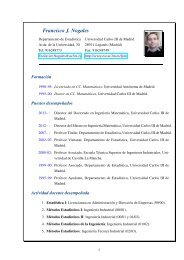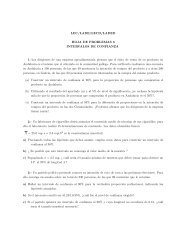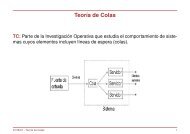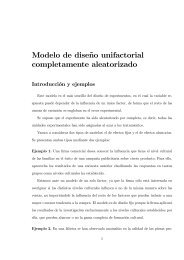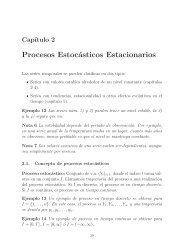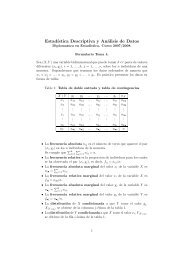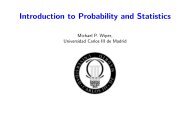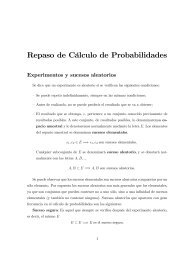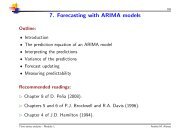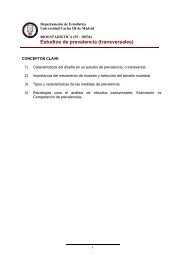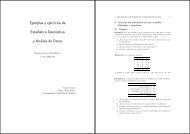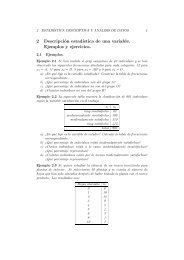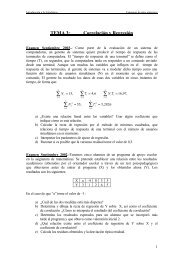Slides Chapter 1. Measure Theory and Probability
Slides Chapter 1. Measure Theory and Probability
Slides Chapter 1. Measure Theory and Probability
Create successful ePaper yourself
Turn your PDF publications into a flip-book with our unique Google optimized e-Paper software.
<strong>1.</strong>6. MEASURABILITY AND LEBESGUE INTEGRAL<br />
Remark <strong>1.</strong>2 The Lebesgue integral of a measurable function f<br />
defined from a measurable space (Ω,A) on (IR,B), over a Borel<br />
set I = (a,b) ∈ B, will also be expressed as<br />
∫ ∫ b<br />
f dµ = f(x)dµ(x).<br />
I<br />
a<br />
Proposition <strong>1.</strong>11 If a function f : IR → IR + = [0,∞) is Riemann<br />
integrable, then it is also Lebesgue integrable (with respect<br />
to the Lebesgue measure λ) <strong>and</strong> the two integrals coincide, i.e.,<br />
∫ ∫<br />
f(x)dµ(x) = f(x)dx.<br />
A<br />
Example <strong>1.</strong>16 The Dirichlet function 1 lQ is not continuous in<br />
any point of its domain.<br />
• This function is not Riemann integrable in [0,1] because each<br />
subinterval will contain at least a rational number <strong>and</strong> <strong>and</strong><br />
irrational number, since both sets are dense in IR. Then, each<br />
superior sum is 1 <strong>and</strong> also the infimum of this superior sums,<br />
whereas each lowersum is 0, the same as the suppremum of all<br />
lowersums. Sincethesuppresum<strong>and</strong>theinfimumaredifferent,<br />
then the Riemann integral does not exist.<br />
• However, it is Lebesgue integrable on [0,1] with respect to the<br />
Lebesgue measure λ, since by definition<br />
∫<br />
1 lQ dλ = λ(lQ∩[0,1]) = 0,<br />
[0,1]<br />
since lQ is numerable.<br />
Proposition <strong>1.</strong>12 (Properties of Lebesgue integral)<br />
(a) If P(A) = 0, then ∫ Af dµ = 0.<br />
A<br />
ISABEL MOLINA 28


